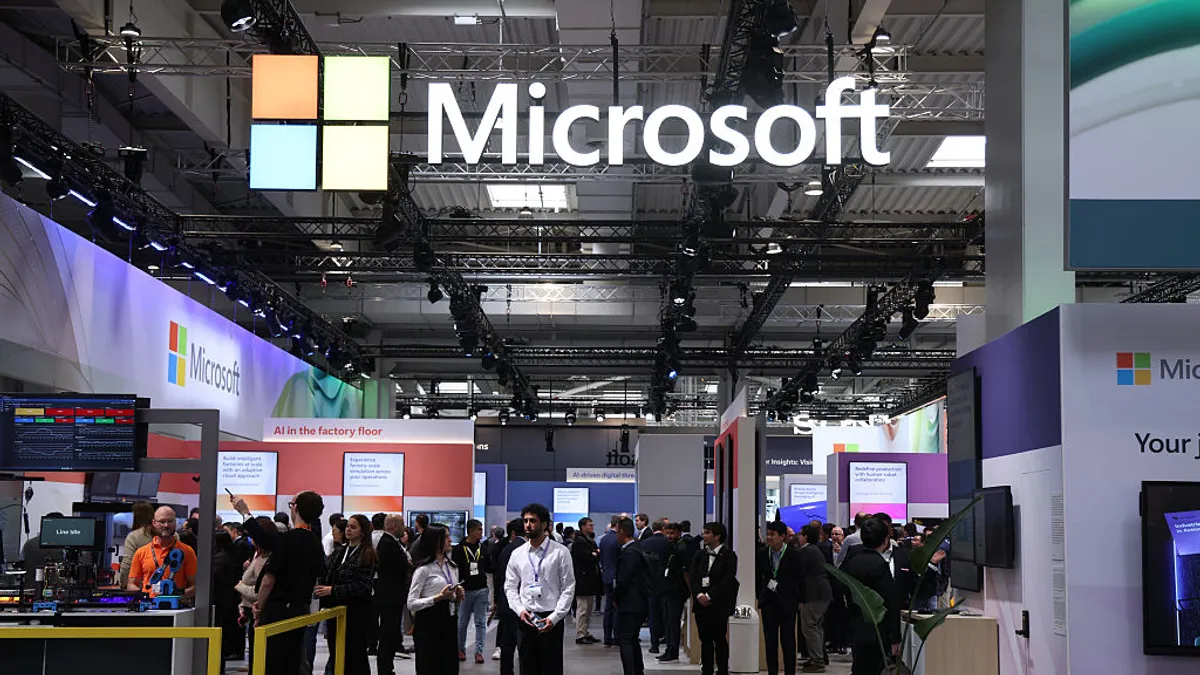Dive Brief:
- Artificial intelligence deployments have helped Microsoft to slow the pace of headcount expansion in its massive finance organization after years of steady growth, an executive said Tuesday.
- Microsoft’s finance department — which consists of roughly 5,000 people — has accelerated AI implementation efforts in recent years, allowing the team to work faster and more efficiently even as the overall business is scaling, Cory Hrncirik, the company’s modern finance leader, said during a presentation at Gartner’s 2025 CFO and Finance Executive Conference in National Harbor, Maryland.
- “As Microsoft continues to grow and become more and more complex, we have no appetite right now to continue to grow our headcount at the same pace,” he said. “We’re trying to empower every person to achieve more.”
Dive Insight:
Microsoft’s finance team began its AI journey about a decade ago, looking for ways to drive efficiency and cost savings, according to Hrncirik. He said the digital transformation effort “has been accelerated at breakneck pace in the past two years.”
As part of that journey, the team has adopted many Microsoft-developed tools, according to the finance executive. “We are customers of Microsoft,” he said.
In an interview following his talk at the conference, Hrncirik said AI is helping the company’s finance team “to keep up with the almost exponential growth of Microsoft without actually growing our people to match.”
“For the time being, our big focus will be: lean in on technology, streamline inefficiencies,” he said. “As we remove inefficiencies, our people will obviously have more bandwidth.”
The push comes as many tech companies are slashing jobs as they focus on efficiency, often using some of the freed up capital for AI investments.
This month, Microsoft said it was laying off about 6,000 employees as it looks to rein in costs while funneling billions of dollars into AI initiatives, according to a Reuters report. The cuts will be across all levels and geographies and are likely the largest since Microsoft laid off 10,000 employees in 2023, the report said.
Hrncirik told CFO Dive he had no insight into whether headcount reductions at Microsoft might impact the company’s finance team.
“However, I can say that we have plenty of work to do in finance,” he said.
Microsoft is currently locked in a race with other big tech companies to dominate the AI market. Since 2023, the company has released several different Copilots, conversational chatbots that have been embedded across the software giant’s portfolio of applications and services to assist users with completing tasks.
In early 2024, the company unveiled Copilot for Finance, a feature in Microsoft 365 apps such as Excel, Outlook and Teams, introduced with the goal of making financial processes more streamlined and seamless.
Last fall, the software provider announced that it was introducing 10 new “AI agents” capable of performing workplace tasks autonomously, including two finance-related tools.
The company expects to spend roughly $80 billion during the current fiscal year on AI-enabled data centers to train large language models and deploy AI and cloud-based applications, Microsoft President Brad Smith said in January. The tech giant remains on track to achieve this spending goal despite a recent pullback in AI data center projects, a spokesperson told CFO Dive last month.














